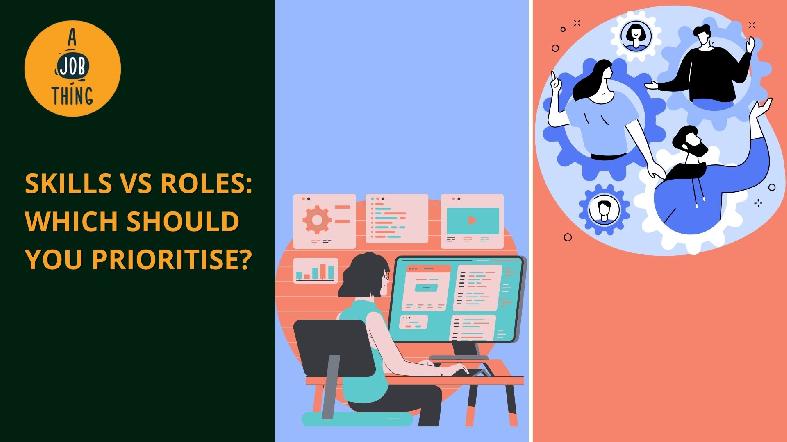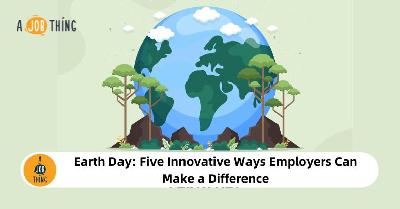
Skills vs Roles: Which Should You Prioritise?
Create Job Description Using AI
Write appealing job descriptions for any job opening to attract the most qualifield and suitable candidates. FOR FREE.
try now
If COVID taught us anything, it's that it's impossible to future-proof your company. There will always be breakthroughs and disruptors that change the way things are done and alter the present landscape.
That is why it is vital to reconsider how we prioritise skills vs roles. When a worker begins a new role in a company, they are often reskilled in a way that silos their knowledge and abilities, tying them to a specific role for the length of their career until they change jobs and reskill again.
But, organisations would do well to adopt an approach that focuses on the diversity of abilities that employees might learn that would help them to gain a foothold in various sectors of the company rather than the role that they will play.
Why you should focus on skill development instead of roles
This concept offers numerous advantages for both the company and the employee.
Employees have the opportunity to explore new areas of potentially untapped talent and learn skills that they would not otherwise have. This benefits their career development and boosts their adaptability, making them more resistant to changing industry demands. It also keeps the employees more interested and enthusiastic at work, lowering their odds of leaving for a better opportunity elsewhere.
Similarly, having a larger number of adaptable employees enhances an organisation's resistance to the dangers of abrupt changes such as the COVID pandemic. When the workforce can move freely between departments thanks to a cross-functional ecosystem, the organisation is less likely to suffer significant consequences when people retire or there is unexpected churn.
The ability of a business to diversify the skill sets of its team members will help it endure many crises. Employees will recognise the value in staying with a company that is planning for a future with them, rather than keeping them tied in specific roles and recruiting from outside when new positions need to be filled.
According to Dr Curtis Odom, business coach and managing partner of Prescient Strategies, "Companies that have a real future focus on having a dynamic skills taxonomy will constantly update the team's skills and, in doing so, the employee experience."
More new skills with a short shelf life
Other factors are at work, such as the rapid evolution of industries, which demand faster upskilling and new-skilling. For instance, it used to be that an employee acquiring a new ability might rely on that expertise for a decade or more. The shelf life of new skills is now roughly five years, and it gets shorter all the time, especially in some industries such as technology.
At the same time that knowledge is becoming obsolete more quickly, the number of skills required for workers to perform a job to a high level is also increasing, causing businesses to invest more substantially in training their staff. Since greater investment in skill development is already a necessity, organisations can capitalise on this culture of continuous training and upskilling by shifting their focus from learning how to execute a role to learning skills vital to the company's success and adaptability.
Learning architect David Yeo states, "The future of work and learning are invariably tied together. Being able to adapt to work changes requires a change mindset and new skills."
Kydon Group, established in Singapore, provides training materials that are accessible, quick, and easily adaptable to the rapid changes that many sectors are experiencing. In-person training courses that lasted weeks or months are no longer available.
Companies that want to use a skills-based approach must also use adaptive training techniques and content that reflects the rapid evolution of knowledge. Going skill-based but retaining old skill training would not benefit the organisation or its employees. To truly reap the rewards, a completely rewired approach is required.
Employees' fear of obsolescence can be relieved by skill development
This shift in mentality enables businesses to widen their view of what they offer workers, not just in terms of skills but also of security. According to PwC's Hopes and Fears 2021 research, nearly 40% of workers believe their role will be obsolete in five years, and 77% wish to upskill or reskill.
In this context, it is apparent that organisations that try to improve their employees' skills to satisfy their demands will improve the employee experience, as opposed to those who are still focusing on role-centred management and HR.
A shift in emphasis from roles to skills leads to higher employee satisfaction and helps organisations withstand fast changes in their industry. Adapting a training technique that considers the continuous introduction of new knowledge would assist both workers and organisations in developing resilience and increasing their future-proofing capabilities.
Source: SHRM





